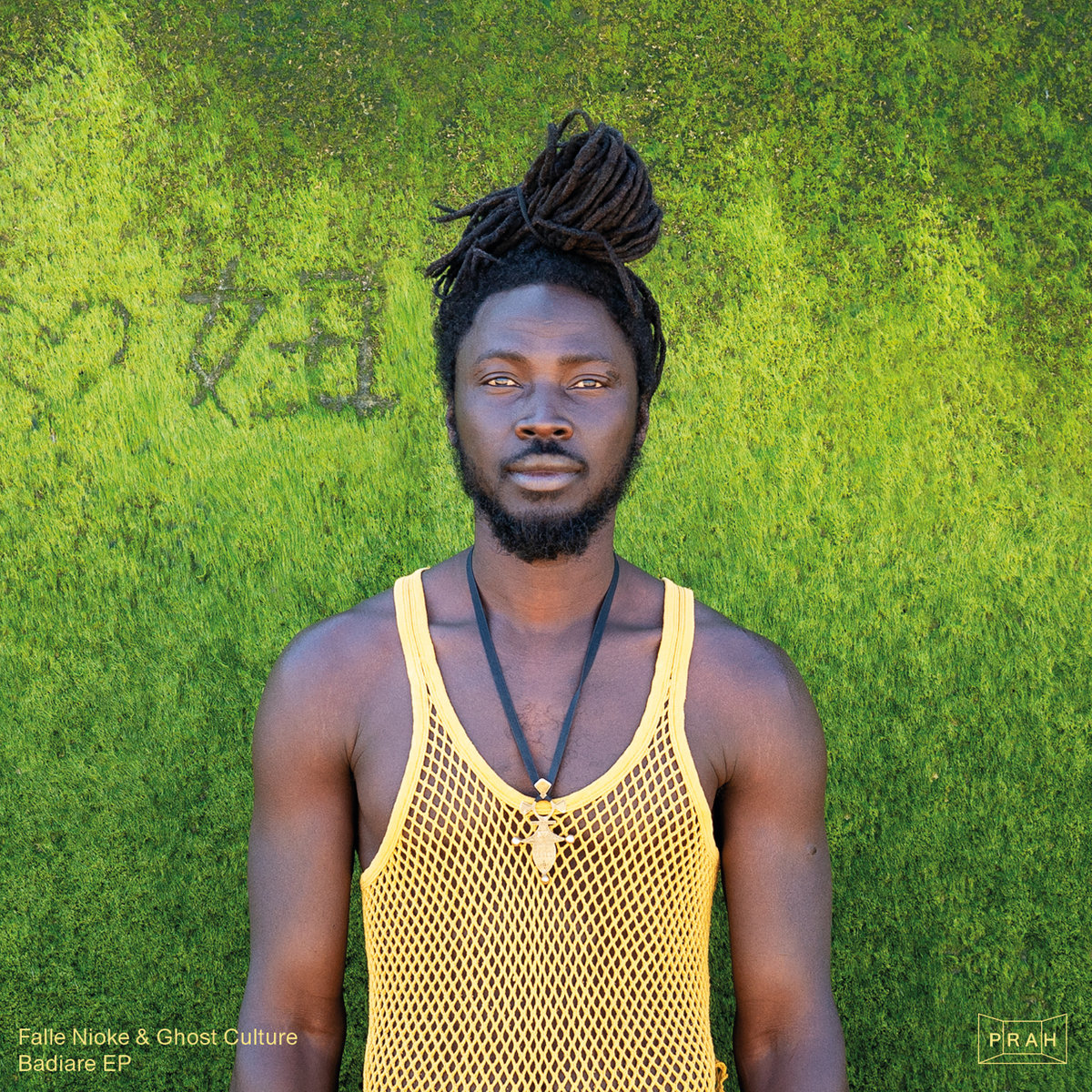In a chronicle that resonates between West Africa and the UK, Falle Nioke presents its latest chapter with Badiare, his second collaboration with producer Ghost Culture. The four-track EP’s dynamism is entangled with the folklore and histories of Falle’s home of Guinea, where he experienced years as a travelling musician, playing both in his country and across West Africa. James Greenwood aka Ghost Culture’s sublime electronica bridges Falle’s world with ours, hosting a hybrid landscape yet to be discovered.
The ambient touch of April’s Marasi EP, made with Swedish producer sir Was, brought forth the naked beauty of Falle’s booming voice, but Badiare’s rumbling power melds it into something more. Articulating in several languages – Coniagui, Susu, Fulani and Malinke, French and English – its deep-toned intensities manifest distant atmospheres while pronouncing fundamental forces.
Falle approaches us with his reflections on things from mundane to spiritual, alongside pumping rhythms and an analog synths that invite us to dance to his musings. Sounds of West African instruments are heard: the gongoma – a metallic thumb piano – is plucked next to effervescent synth beeps, and the three-stringed, bow-necked bolon pulsates with snapping high-hats. Compared to Marasi, Badaire feels dancier, bringing out a bodily experience in the sharp designs of UK club music. But, to accent its mythical dimensions, Ghost Culture’s subtle electronic productions are tailored precisely to each moment of energy or serenity felt in Falle’s presence.
The first track “Leywole” is inspired by Falle’s having once witnessed a woman in public very boldly rejecting the approaches of a man. He narrates the conflict with a spoken-world flow, framing its fiery spirit with the airy acoustics of his gongoma. From “Leywole”‘s glowing intervals, the following “Spiritually” sets the scene for Falle’s deepest chanting. Steeped in emotion, his dark booming voice singing “spiritually, metaphysically / you’re always on my mind” resounds like a bassline.
“Jaarama” is the slowest piece on Badiare; melodies brush into pads and fuzzy mallets, and enveloped by synthesisers, Falle croons with a vocal delivery that is almost unreal, inviting the fables of a faraway land. In spite of singing in a foreign tongue, its message comes naturally, his voice speaking charismatically for itself.
The EP’s more propulsive electronics return in its final track “Ayekouma”, a celebration of destiny that urges listeners to follow their unique paths. A song embodying Falle’s unflinching artistic determination, its lyrics and sounds reflect challenges that have been singularly faced by Falle, but also universals in his way of overcoming them. Its rhythms channel the ecstasies and rebellious joys of dance music from Europe to Africa, indicating a wisdom deeply entrenched in music itself.
As Badiare reveals itself as another gem in global dance music, Falle’s remarkable biography adds weight that his work holds. Many obstacles were faced between his days in Guinea to his acclaim in the UK. From the second he decided on becoming a musician he rebelled continually against the will of his parents, and, furthermore, authorities across West Africa who made things extremely complicated for travelling artists, with immigration laws often leaving many, including Falle, incapacitated in jail cells. But in whatever language he sings, in the inflections of each vital expression learnt from the multitude of rhythms traversed in Africa, we encounter the residue of self-realisations made on an impossible journey as an artist.
Meanwhile, Falle’s collaborations exemplify an exploration of an intriguing axis emerging between two worlds. As observed by Falle, the very plurality of African folk traditions can harbour the excitement of limitless musical discoveries yet to be found, something in evidence as we see it married with modern electronica more and more often. In Badiare, Ghost Culture’s electronica is not only used to highlight the influences of traditional percussion with the science fiction of sound design – as a producer influenced equally by singer song-writers like Arthur Russell and Elliot Smith as much as LFO or Aphex Twin, his electronica is made to carry the presence of an individual vividly.
Badaire is a study for the capacity of electronica to tell a story. In West Africa, musicians traditionally have a role as story-tellers, or historians – but alongside Ghost Culture, who helps all sway to its rhythm, Falle’s transformative epic is international. Worlds collide in his voice, emanating possibilities.

